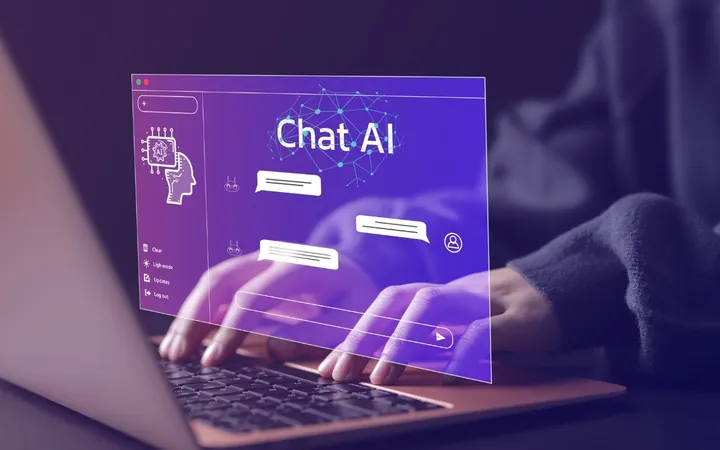
Shocking Study Reveals 22% of Computer Science Papers May Be AI-Written!
2025-08-05
Author: Daniel
Unraveling the AI Paper Crisis
A groundbreaking study has unveiled a startling revelation: approximately 22% of computer science research papers may incorporate text generated by artificial intelligence! Researchers meticulously examined over one million academic papers and preprints published from 2020 to 2024, honing in on the most edited sections—the abstracts and introductions.
Using sophisticated statistical methods to detect AI footprints, the team tracked the occurrence of certain buzzwords often found in AI-generated content, including 'pivotal,' 'showcase,' and 'intricate.' This analysis led to the shocking discovery that the prevalence of AI text surged dramatically soon after the launch of ChatGPT.
AI’s Grip on Academia Grows Stronger
According to James Zou, a co-author and respected computational biologist from Stanford, the upward trend in AI-generated content is particularly pronounced in fields closely aligned with AI itself, such as computer science and electrical engineering. For context, just 7.7% of mathematical abstracts bore any signs of AI use, with even fewer in biomedical research and physics. However, the creeping integration of AI into academic writing is becoming a ubiquitous trend across various scientific disciplines.
The Struggle for Control in Scholarly Publishing
Initially, the academic world attempted to curb the influence of generative AI. Several journals enacted policies that require authors to disclose the use of these technologies in their work. Yet, enforcing these guidelines has proven to be a monumental challenge. Many papers contained glaring indicators of AI assistance, such as phrases like 'regenerate response' or 'my knowledge cutoff.' This prompted experts like Guillaume Cabanac from the University of Toulouse to create databases cataloging suspicious publications.
The Detection Dilemma
As the sophistication of AI increases, the detection of AI involvement in academic writing is becoming increasingly elusive. Authors are adapting by eliminating obvious telltale signs, while current detection tools often produce inconsistent results, particularly when evaluating texts from non-native English speakers.
Potential Risks and Future Implications
The study primarily focused on abstracts and introductions, but co-author and data scientist Dmitry Kobak from the University of Tübingen cautions that researchers might start relying on AI to construct comprehensive literature reviews. This dependency could lead to a homogenization of findings and create a concerning feedback loop where new language models are trained on previously generated AI content.
Moreover, the proliferation of AI-generated papers filled with inaccuracies or fictitious information raises serious questions about the integrity of the peer-review process, potentially jeopardizing the trustworthiness of scientific publishing as a whole.


 Brasil (PT)
Brasil (PT)
 Canada (EN)
Canada (EN)
 Chile (ES)
Chile (ES)
 Česko (CS)
Česko (CS)
 대한민국 (KO)
대한민국 (KO)
 España (ES)
España (ES)
 France (FR)
France (FR)
 Hong Kong (EN)
Hong Kong (EN)
 Italia (IT)
Italia (IT)
 日本 (JA)
日本 (JA)
 Magyarország (HU)
Magyarország (HU)
 Norge (NO)
Norge (NO)
 Polska (PL)
Polska (PL)
 Schweiz (DE)
Schweiz (DE)
 Singapore (EN)
Singapore (EN)
 Sverige (SV)
Sverige (SV)
 Suomi (FI)
Suomi (FI)
 Türkiye (TR)
Türkiye (TR)
 الإمارات العربية المتحدة (AR)
الإمارات العربية المتحدة (AR)